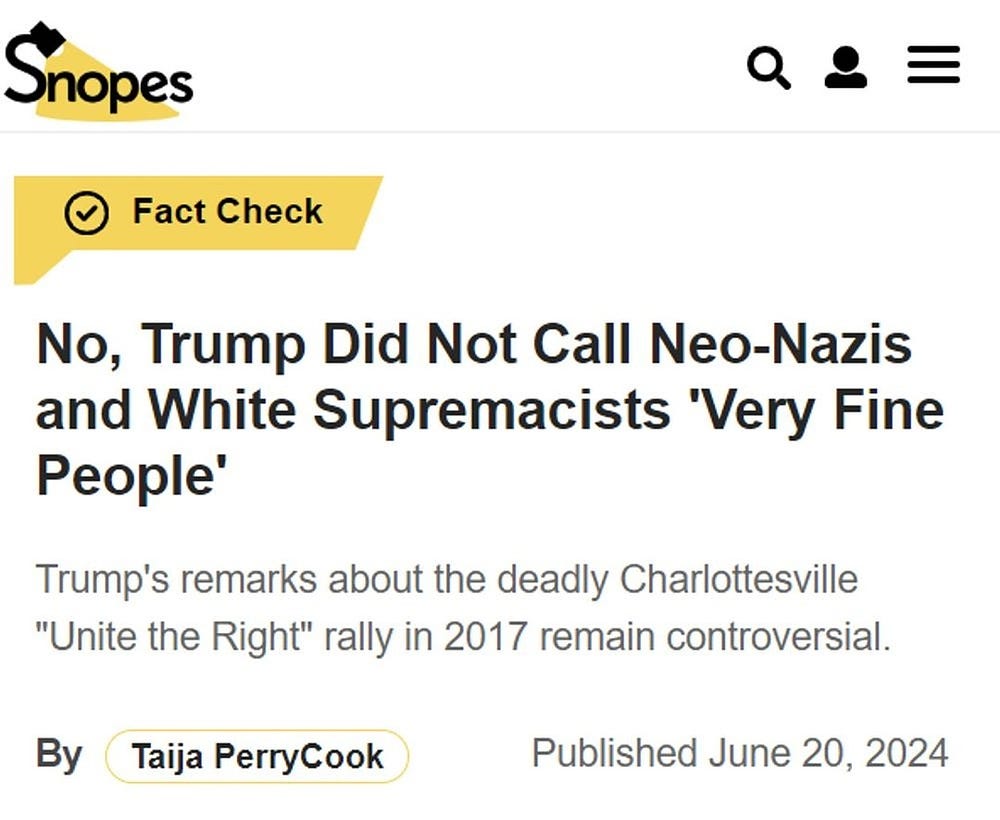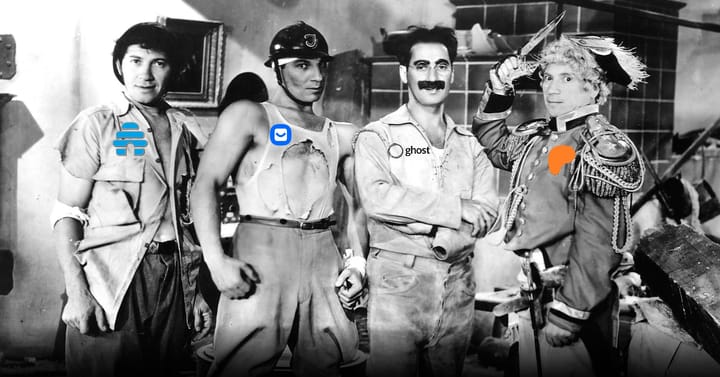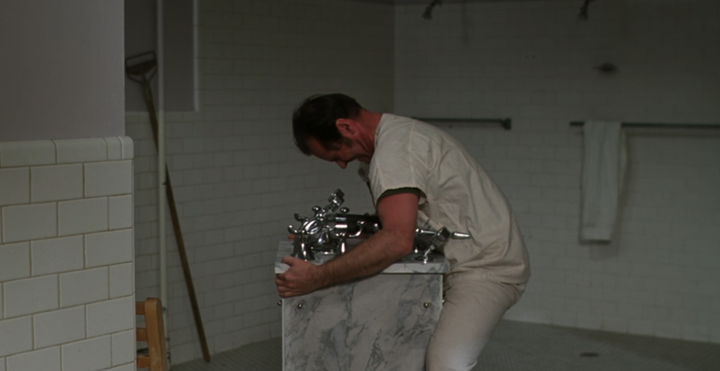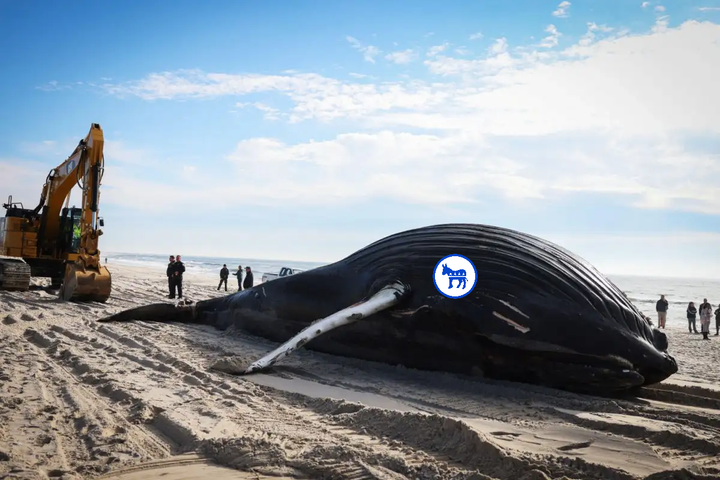A Very Fine Publication Date
My new book, VERY FINE PEOPLE, is out today! Some thoughts, some links, some pictures, and an astonishingly well-timed Snopes article to demolish.

Hey everyone, Very Fine People is out! You call your local bookseller or library and ask them to get you a copy. Give them the ISBN (979-8-9899949-0-8) if they ask. If they're really cool it might even be on shelves. You never know.

You can order personalized signed copies here and I'll go sign it, and that will look very much like it does in the photo above.
If you don't care about signatures, you can order direct, and get 15% off the cover price. I will get a bit more than I get from Amazon or wherever. You will get a book!
If you want to upgrade to the Cadillac of support, you can sign up for a Founding Member level subscription to this newsletter, and you'll get a personalized signed copy as part of your subscription. Very Fine People very literally exists because of my Founding Members, by the way, and they are all thanked in the acknowledgments at the back of the book. If you want to be part of any potential next book, and you have the dough, this could be the option for you.
As for eBook: Here's the Kobo. Here's the Kindle. Here's the Nook. I'm working on Apple books. Not sure what the issue is there.
Oh and hey if you read it and like it, talk about it on social media, and go to one of the standard spots and leave a review. It really helps.
And now for an unexpected Very Fine tie-in
I keep returning to the time when Nazis invaded Charlottesville in order to "unite the right" (as they put it) under the shared cause of protecting the legacy of the murderous racist genocidal traitors to country and humanity that was the Confederacy. They murdered an anti-Nazi counter-protester named Heather Heyer, and not long after that President of the United States came out and said that there were "very fine people" on both sides.
Trump's remarks represented a clear defense of the Nazis for many reasons, because, even though when pressed repeatedly he said he condemned the Nazis, his condemnation was couched in both-sides framing and defense of their position, and anyone who has been paying attention for even a second knows that both-sides framing is almost always offered in defense of the worse side, particularly when one side is clearly and obviously in the wrong.
I bring this up because the Charlottesville Nazi invasion, like the election of Donald Trump itself, was a flashpoint in our country when authoritarianism, open supremacy, and even Nazism became mainstreamed and eventually embraced by Americans who call themselves "conservative." Because my ruminations of that embrace make up a major focus of the book. Very Fine People is the title of my book. I've been writing it since basically the moment Trump uttered those words.
I also bring this up because, in an extraordinary bit of timing, the site Snopes, which positions itself as a fact-checker, for some reason or another decided that 7 years after the fact would be a perfect time to try to fashion a narrative of exoneration around that moment.
And my contemplation of the "very fine people" moment focuses most directly on our dominant national instinct to craft narratives of exoneration for supremacy.
It's really extraordinary, but Snopes is doing exactly what my book is talking about, on the week my book launches. I swear I didn't pay them for this. They just did it.
So I'd like to dig into it.
Take a look at this bullshit.
There's a sleight of hand right at the start that catapults us into a massive lie.

Let's do the sleight of hand, first. The article chooses to answer the question "Did Trump call Neo-Nazis and white supremacists 'very fine people'? This rebuts the wrong question, which is what is done when the goal is avoiding the actual questions.
It also does a lot of Trump's work for him, by taking his words at face value when there is no reason to do so and ample reason not to.
Trump, like any malignant narcissist, knows the trick of using weasel phrasing and world salad to give himself deniability for anybody who wants to exonerate him, by picking and choosing and taking at face value whatever phrases will let him say what he means while holding him innocent of saying it.
So yes, it's true Trump didn't come out and say 'The Nazis are very fine people." But this isn't the actual problem with Trump's words, and it never was, and the first problem with the Snopes article is that it pretends that this was the problem, and frames it as a fact check, in order to debunk it.
The actual complaint isn't that Trump directly called the Nazis "very fine people," but rather that there is a distinction to be found between Nazis and those aligned with Nazis, and that the distinction is meant to be meaningful specifically because these allies, unlike Nazis, are "very fine." The other critique is that Trump, by saying there are "very fine people on both sides," drew moral equivalence between those who unite and demonstrate with Nazis, and those who demonstrate against them.
Those are the actual criticisms, which Snopes ignores.
Which changes the subject. As, I'd argue, it's meant to.
Presto!
There are two reasons I think the actual question gets ignored in these cases.
The first reason Snopes decided to answer the wrong question instead of the actual complaint is simple: It's easier to answer, particularly if you want to take Trump's words at face value in order to create an exonerative story. I'm reminded of the Thomas Pynchon quote If they can get you asking the wrong questions, they don't have to worry about answers. One way to get people asking the wrong questions is if you pose the question on their behalf and then answer it to your benefit. Enter Snopes.
The second reason is the main one: Our dominant cultural spirit is supremacist, so our dominant cultural instinct is to exonerate supremacy. The point isn't getting at the truth, but burying it. People need a reason to dismiss unignorable instances of supremacy. It doesn't need to be a good reason. Snopes gave a reason to people who want a reason.
Presto!
So that's the sleight of hand. Now the big lie.
The big lie is that nobody with "very fine" qualities can be a supremacist or a Nazi; therefore nobody can ever be considered a supremacist or a Nazi as long as they present some good quality or another to praise.
But the opposite is true.
The now-buried truth is no group ever committed atrocities until it first convinced itself it was too good—uniquely good, even—to commit atrocities. The now-buried truth is that it is precisely the lie of "very fine people" that allows supremacy to rise—on their goodness, not their badness, on their very fine qualities, on their moral authority, which they lend to monsters in order to permit atrocities.
Nazis and Confederates and Christian nationalists and other supremacists only ever rise on the permissive shoulders of masses of very fine people willing to lend their moral authority to a monstrous cause—their energy, their normalcy and niceness and well-scrubbed politeness, too.
On one side were those who marched to defend their heritage: a celebration of traitors who murdered their fellow citizens in order to preserve the institution of chattel slavery.
Trump asked: How dare we impugn them, just because of the apparently coincidental direct allyship of overt Nazis?
Trump, like all cheap hucksters, knew which lies people would believe, knew what lies people wanted to hear, and knew well the lies they depend on for fortune and identity.
So he told the lie of the very fine people. It’s a popular lie. It’s a traditional lie.
That's the truth buried deepest: Many of us love this lie, and seek it out until we find it.
Supremacism is the belief that some people matter and others don't, and those who matter can do whatever they want to those who don't, because those who matter deserve to dominate & those who don't deserve domination. It’s our dominant cultural belief—and it dominates not because it deserves to, but because it is accommodated.
And who accommodates it? Who listens to the rationales and excuses and deniability word salad of supremacy and accommodates it? Well, Snopes, for one.
But I think it's also many of us, who haven't ever faced the ways we depend on supremacy for fortune and identity.
We are "very fine" people, too.
Supremacist belief is hateful. It's ugly. But it's the instinctive accommodation of that belief that makes us a supremacist culture.
Accommodators can be very respectable and nice. Very fine people. They can run fact-check websites, for example—or read them. All that's needed is to follow the urge to ignore harder less comfortable questions, in favor of easier more comforting ones.
Accommodating exoneration is supremacy's oxygen.
Supremacy believes itself to not only be good but uniquely good—the best ever. Selected by God for a manifest destiny. A city on a hill. The greatest country ever. Those who practice it INSIST on being told that they are very fine. An ideology that believes itself supreme believes itself perfected—exceptional, you might say. Which means that cannot countenance improvement. Which means that it it sees improvement itself as an enemy. Even knowing true things about itself—especially that.
So of course supremacists need to hear a story of exoneration, particularly when they've done something so overtly supremacist as align with Nazis who invaded a city and murdered a counter-protester.
My question today is: why do so many of us want to hear that story, too?
The answer isn't so comforting I'm afraid. The truth of the matter is that for many of us the idea that very fine qualities don't exonerate us from supremacy is a distressing one. A lot of us, even if we don't march with Nazis, still want to hear the lie of the very fine people.
And the reason many of us want to hear the lie of the very fine people is that, in ways that we have never really faced, we too rely upon supremacy for fortune and identity. For those of us who want to hear exonerative lies about supremacy, there are those who will provide them.
Who are the supremacists in a land with a supremacist dominant cultural narrative? How often do we, too, assure ourselves that we are very fine people? The answer isn't comfortable to many of us, if we have listened to comfortable lies.
Us? Me.
The answer isn't comfortable to me.
Anyway, I guess that even while the human side of me wishes they had just left well enough alone, the marketing part of me would like to thank Snopes for their supremacist-exonerative bullshit, which so prominently illustrates my premise, right on cue.
VERY FINE PEOPLE is out today, available wherever books are sold.
It's about how we got here, and where we should go now, and how we might get there.
It’s also about the exonerative lies we Very Fine People tell ourselves.
The Reframe is supported financially by about 5% of readers.
If you liked what you read, and only if you can afford to, please consider becoming a paid sponsor.
Click the buttons for details.
Looking for a tip jar but don't want to subscribe?
Venmo is here and Paypal is here.
A.R. Moxon is the author of The Revisionaries, which is available in most of the usual places, and some of the unusual places, and the upcoming essay collection Very Fine People, which you can learn about how to support right here. He is also co-writer of Sugar Maple, a musical fiction podcast from Osiris Media which goes in your ears. His daddy's rich, and his momma's good-lookin', so hush, little baby, don't you cry.




Comments ()